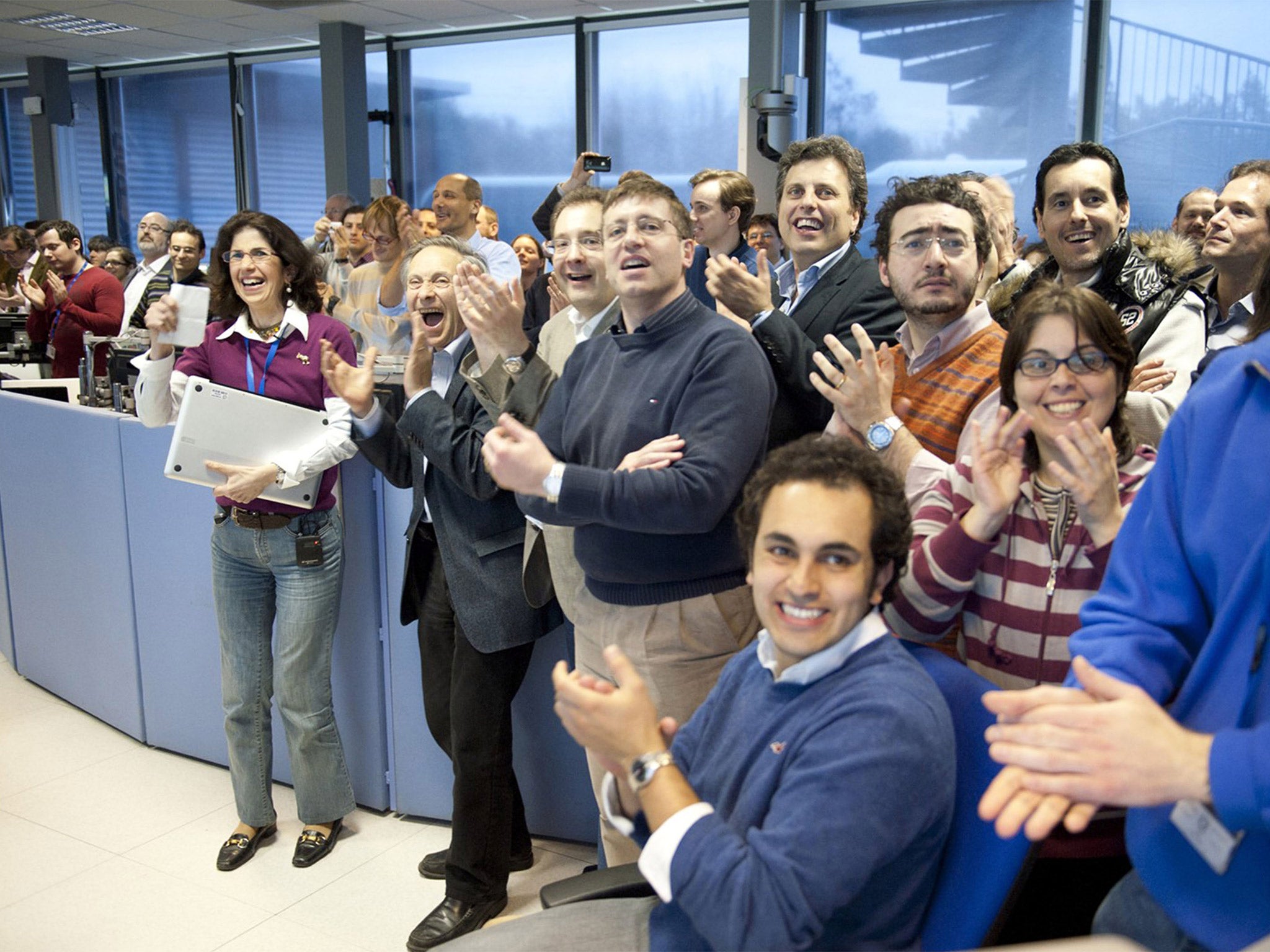In 2009, a rival national newspaper played a game where it asked a writer who hadn't seen Star Wars to approximate the plot based on what he picked up in passing. His outline wasn't a million miles away from the actual movie: "Their heroic captain is called Luke Skywalker and he is joined by their man-shaped pet Chewbacca, a 2ft robot, and Princess Leah." Close enough, right?
That is how – one suspects – most people's, or at least the non-scientists among us, knowledge of the Higgs boson stands. We may have read the reports at the time, watched the news, looked at videos explaining how the Large Hadron Collider works... But, ultimately, if we (OK, I) were asked to describe the "plot" of the experiments over the past couple of years at Cern, you'd probably talk about the particles colliding, and something to do with the God particle and then look blank before running to Wikipedia.
So if you don't know your supersymmetry from your Super Soakers, last night's Storyville ought to have helped align your brain's particle beams.
Particle Fever: the Hunt for Higgs Boson (BBC4) told a big story. Perhaps the biggest of our time. Filmed over five years, it took us from the build up of the LHC being turned on, to the announcement – in front of a lecture hall with a combined brain-power big enough to power a small country – that a Higgs particle had been discovered.
The story was told not through Peter Higgs (who did turn up at the final announcement to applause and tears), but through six scientists on the project. Some, like David Kaplan (who also served as an executive producer) are theoretical – others like Monica Dunford and Fabiola Gianotti are the experimentalists. The former suggest theories as wild and mind-boggling as the multiverse. The latter are the poor sods who have to dig a 17-mile tunnel under the French/Swiss countryside to see if the theories are correct.
It's an odd relationship. A symbiotic one, of course, but also one conducted across vast geographic expanses. The people whose theories are tested by the discovery of a Higgs particle are on the other side of the world while the tests take place. (Similarly, it wa this need to share data that led to the creation of the world-wide web at Cern.)
The film – edited by Walter Murch (The Godfather, Apocalypse Now) – used this divide to follow scientists on both sides and explain (alongside some clever graphics) why the four major experiments at the LHC are so important and also, how they actually happen.
We also got a sense of the politics and pan-nationalism of the project. Scientists at Cern often come from countries completely at odds with each other and, indeed, two of our protagonists on the theory side – Savas Dimopoulos and Nima Arkani-Hamed – both came from families who fled their native countries due to political tensions.
There was also some great archive footage of congressman Sherwood Boehlert blocking the building of an US particle accelerator in the Nineties with a phrase people at Cern should have put on gift shop mugs and T-shirts: "I doubt anyone believes that the most pressing issues facing the nation include an insufficient understanding of the creation of the universe."

Watch Apple TV+ free for 7 days
New subscribers only. £8.99/mo. after free trial. Plan auto-renews until cancelled

Watch Apple TV+ free for 7 days
New subscribers only. £8.99/mo. after free trial. Plan auto-renews until cancelled
I'd implore you to watch the film on iPlayer if you missed it. The skill needed to tell both the human story behind Higgs as well as the science is no small one. Its director Mark A Levinson has created a document worthy of the most extraordinary experiment of our time.
Subscribe to Independent Premium to bookmark this article
Want to bookmark your favourite articles and stories to read or reference later? Start your Independent Premium subscription today.


Join our commenting forum
Join thought-provoking conversations, follow other Independent readers and see their replies